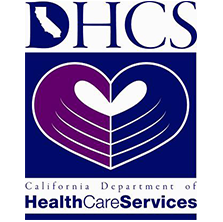An individual battling a substance abuse issue or addiction along with a mental disorder is suffering from a co-occurring disorder. A co-occurring disorder, previously referred to as dual diagnoses, can be any combination of mental illness and substance abuse or addiction. This includes anything from alcoholism and anxiety, cocaine addiction and eating disorders, post-traumatic stress disorder and opioid dependence.
Previously, it was believed that treatment for mental illness and addiction was completely separate from one another. The two disorders were treated using drastically different approaches and therapies. As a result, patients were not receiving proper care to treat both their addiction and psychiatric disorders.
Causes of Co-Occurring Disorders
In a majority of cases, a combination of issues contributes to the development of co-occurring disorders. For some individuals, prolonged use of drugs or alcohols impacts the brain so much that it sparks mental health issues. For most, however, alcohol and drugs are used as a coping mechanism for existing mental health issues. Some causes of co-occurring disorders are as followed:
- Biological Factors. Certain individuals are just wired differently and attracted to the high of alcohol and drug use. Anything that could impact the chemical makeup and functioning of the brain such as childhood exposures, prenatal development, and injury are considered biological factors.
- Genetic makeup. If an individual has a close relative who struggles with substance addiction, they may be at a higher risk of developing an addiction. The same goes for mental disorders.
- Life experience. Some significant life experiences, such as having a chronic illness, can increase the likelihood of developing negative mental health symptoms.
- Environment. If a person is raised in a home or other environment around drug use, it may contribute to the development of substance addiction and/or mental health disorders.
- Trauma. Anyone can experience trauma regardless of age, race, or gender. This includes sexual and physical abuse, war, natural disaster, and tragic accidents. The exposure to trauma can result in mental illness and the urge to use drugs or alcohol as a coping mechanism.
Co-Occurring Disorders Integrated Treatment
In this day and age, both addiction and mental health specialists recognize co-occurring disorder treatment methods as a separate field. Even though the symptoms of one disorder may come before the other, both disorders tend to worsen the symptoms of one another. For this reason, treating co-occurring disorders simultaneously is incredibly important.
Integrated recovery plans are specifically designed to treat the certain side effects that addiction patients with mental illness experience. These individuals face certain challenges with the negative side effects of mental issues such as low motivation levels, fear of social situations and reduced attention span. Treating co-occurring disorders at the same time helps rehab patients recognize and address their individual triggers that could cause relapse, such as mood swings, panic attacks and depression.
Different therapy methods are used to treat co-occurring disorders. Individual and group therapies can be structured to aide those suffering from mental illness. In addition to therapy methods, practices like yoga, mindfulness and meditation are used to rebuild mental wellness. Non-addictive medication programs are also used to treat co-occurring disorders and put clients on the path to mental and physical recovery.
The Importance of Recovery
Individuals struggling with both a mental health disorder and substance abuse or addiction is extremely dangerous, and in some cases, deadly. Both disorders are extremely heavy on the mind and body. The poor lifestyle choices linked to both illnesses can result in untimely death if not treated.
Along with addiction, some life-threatening issues that often occur with a mental health disorder diagnoses include:
- Heart Disease
- Stroke
- Diabetes
- Asthma
- Obesity
By addressing both addiction and mental illness in an integrated care program, clients are encouraged to make positive lifestyle changes promoting health and recovery. Individuals are able to obtain the tools they need to get their lives back in order, rebuild healthy relationships, and build a support network in recovery.
Because each person handles addiction and mental illness differently, each individual in a co-occurring recovery program will have a unique treatment plan. An effective treatment targets the underlying disorder in a healthy and safe environment. In treatment, individuals will have access to all the medical, therapeutic, and holistic resources needed to heal physical, mentally, emotionally and spirituality. If mental health is a factor in or with an addiction, is highly recommended to attend a facility that supports and treats co-occurring disorders.
START YOUR JOURNEY WITH
SAFE HARBOR HOUSE
(310) 861-4157
Contact Us Today
Verify Your Insurance




